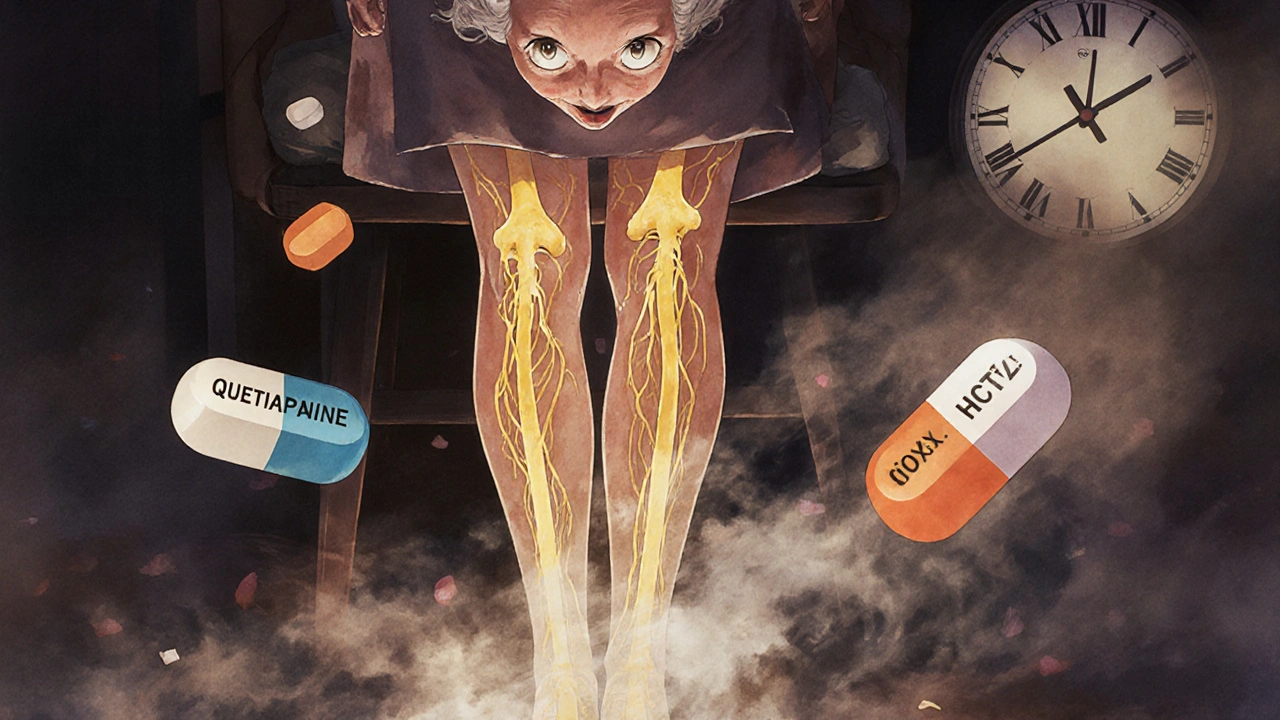Drug-Induced Hypotension: Causes, Risks, and What You Can Do
When your blood pressure drops too low because of a medication, that’s called drug-induced hypotension, a condition where prescribed or over-the-counter drugs cause abnormally low blood pressure, leading to dizziness, fainting, or worse. Also known as medication-induced hypotension, it’s not rare—especially in older adults or people taking multiple drugs at once. It doesn’t mean the drug is broken; it means your body’s response to it went too far. Think of it like turning down the heat too much in your house—you didn’t break the thermostat, but now you’re shivering.
This isn’t just about blood pressure pills. antihypertensive drugs, medications designed to lower high blood pressure like enalapril, labetalol, or hydrochlorothiazide can sometimes push pressure too low, especially when combined. But it’s not limited to those. drug interactions, when two or more medications affect each other’s effects in the body can trigger it too. For example, mixing a heart medication with a painkiller or even a supplement like artichoke extract might drop your pressure unexpectedly. Even antibiotics, antidepressants, and drugs for Parkinson’s or erectile dysfunction have been linked to this problem. The real danger? You might not feel it until you stand up and everything goes black.
Who’s most at risk? Older people, those with kidney or heart issues, and anyone on more than three medications. It’s also common after surgery, during chemotherapy, or if you’re dehydrated. The problem isn’t always the drug itself—it’s the mix, the dose, or your body’s changing ability to handle it. That’s why doctors need to know every pill, patch, or powder you take—even the herbal stuff. A supplement like artichoke extract might help your liver, but it can also lower blood pressure. And if you’re already on a blood pressure pill? That’s a quiet recipe for trouble.
What can you do? Don’t stop your meds. Instead, track your symptoms: dizziness when standing, blurry vision, fatigue, or nausea. Check your blood pressure at home if you can. Bring your full list of meds to every appointment—even the ones you only take once a week. If you’ve had a fall or passed out, tell your doctor. It’s not weakness; it’s data. And your doctor might adjust your dose, switch a drug, or find a safer combo. Sometimes, just drinking more water or avoiding hot showers helps. Other times, it means replacing a drug that’s doing more harm than good.
Below, you’ll find real-world guides on medications that can cause this issue—like how labetalol might affect your vision, or how enalapril-hydrochlorothiazide works in kidney disease. You’ll see how even common drugs like doxycycline or tetracycline can have unexpected side effects when mixed with others. These aren’t theory pages. They’re practical, tested insights from people who’ve been there. You’re not alone. And you don’t have to guess what’s happening to your body.
Orthostatic Hypotension from Medications: Why You Feel Dizzy When You Stand Up
- DARREN LLOYD
- 16
Dizziness when standing up could be caused by your medications. Learn which drugs trigger orthostatic hypotension, how to spot it, and what steps you can take to prevent falls and improve safety.
READ MORE
